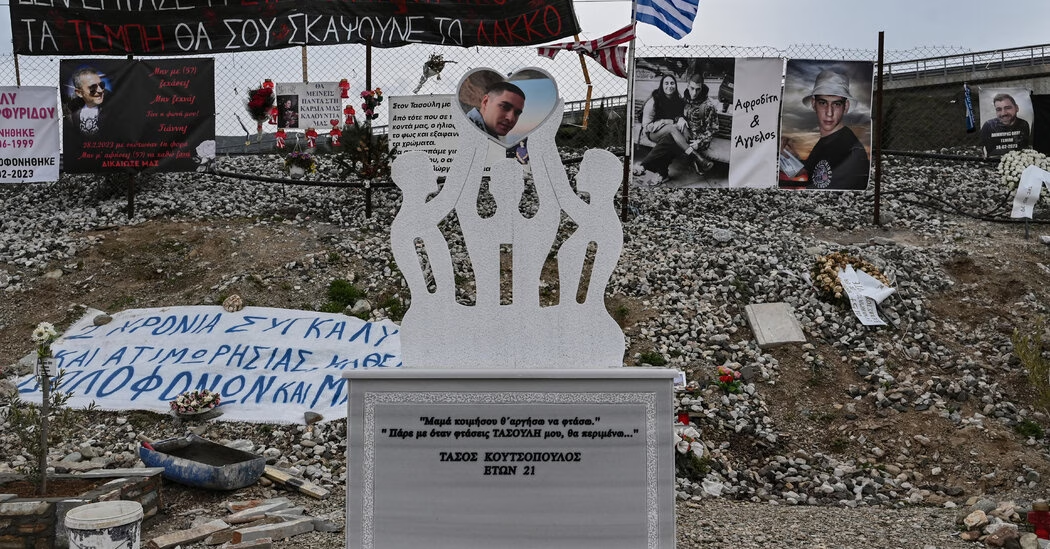A general strike in Greece on Friday caused a halt in trains, ferries, and flights, with public services disrupted as thousands of workers walked off the job on the second anniversary of Greece’s worst-ever railway disaster. The 24-hour walkout, called by Greece’s two main labor unions, was the latest in a series of public protests over a dragging judicial investigation into the crash, in which 57 people were killed. There is still lingering anger in the country over the government’s failure to put any of its politicians under scrutiny over the loss of life.
The strike involved public- and private-sector workers, with rallies planned for Athens and other cities in Europe. Protesters called for those at fault in the crash to be punished and for rail safety to be improved. All commercial flights to and from Greek airports were grounded, and no ferries or trains would run. Limited public transportation would operate in Athens to allow demonstrators to get to the rally. Schools and hospitals were also affected as teachers and health care workers joined the action.
On the night of Feb. 28, 2023, a passenger train and a freight train collided head-on on a route linking Athens with the northern port of Thessaloniki. Many of the 57 people who died in the crash were young students returning from a holiday weekend. The Greek authorities blamed human error, saying that a routing mistake by a station master had put the passenger train onto the same track as an oncoming freight train. However, the authorities also admitted to shortfalls in Greece’s railway infrastructure and delays in installing modern safety systems that could have averted the disaster.
Two years later, questions remain about the exact circumstances of the crash. A report by an independent rail and air investigation authority found that delays in installing electronic signaling and remote surveillance systems played a key role in the collision, as did chronic understaffing and underfunding resulting from cutbacks enforced during Greece’s decade-long financial crisis. The report also criticized the Greek authorities for flawed mapping of the crash site, a factor that it said resulted in the loss of “potentially vital information.”
Investigators added that an “enormous fireball” from the crash, which probably killed five to seven of the victims, may have been stoked by a “hitherto unknown fuel.” They called for further investigation into that. Several polls conducted in recent weeks showed that most people in the country were unhappy with the government’s handling of the disaster.
Source: https://www.nytimes.com/2025/02/28/world/europe/greece-strike-train-crash-anniversary.html





